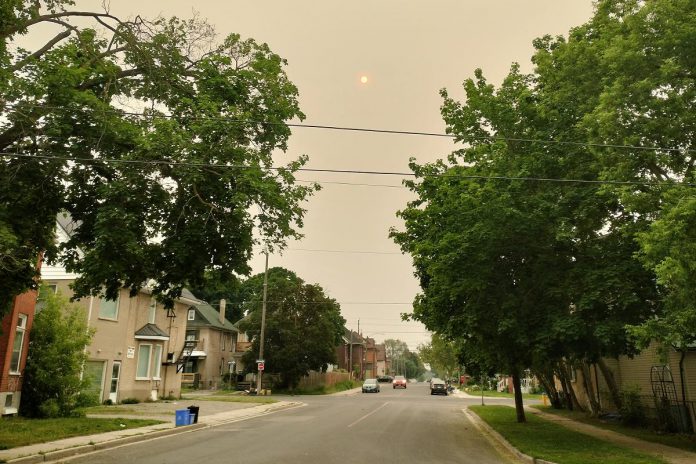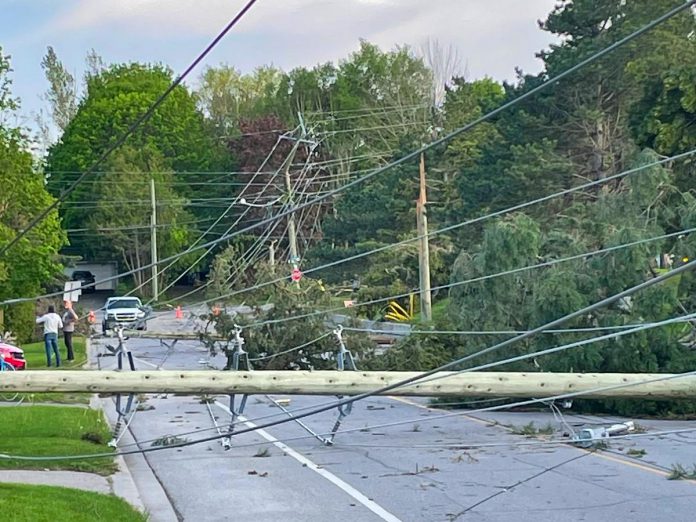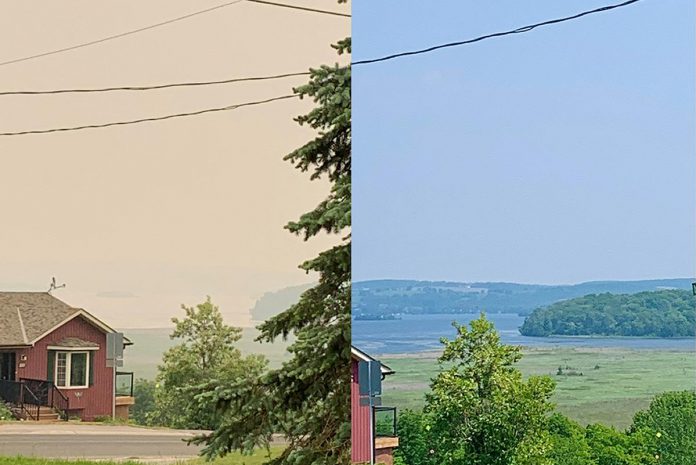
Two years ago in May, our community experienced the wrath of a changing climate: 190 km/h winds, days without power, damaged buildings and vehicles, downed power lines, and trees uprooted from the ground. The derecho storm of May 21, 2022 signalled for all of us that climate change is happening right now in our community.
Faced with the certainty of devastating storms, droughts, and floods, we all have an opportunity to adapt.
Peterborough Public Health (PPH) recently completed a climate change and health vulnerability assessment, which outlines the potential impacts of climate change in the Peterborough region and identifies the populations who are most vulnerable.
As we are already seeing the impacts of climate change on the health of our community, PPH is focusing on adaptation: preparing and taking measures to reduce the harms associated with climate change, particularly the health-related impacts.
While everyone is at risk of being impacted by climate change, certain groups are more vulnerable than others. Factors such as age, living conditions, income, education, and social connection play a big role in a person’s ability to adapt to an extreme weather event or temperatures.
Overall, vulnerability is impacted by a person’s exposure to the hazard, sensitivity to the hazard, and their ability to adapt. The greatest vulnerability exists where multiple factors (such as life stage and circumstance) intersect.

In addition to physical health, climate change has a significant impact on our well-being and mental health. Eco-anxiety or climate anxiety is increasing, particularly among young people — 78 per cent of young Canadians aged 16 to 25 reported impacts on their mental health due to climate change.
I have experienced the impacts of climate change. Growing up north of Sudbury, exposure to wildfire smoke was a regular occurrence. Today, poor air quality exacerbates my asthma, which I developed in my adult years. During the wildfire smoke event experienced last summer, I was forced indoors for weeks.
During the May 2022 derecho, I was fortunate to have shelter and be safe, but many people did not. I cannot imagine being without a home or living in inadequate housing, being a young person experiencing extreme weather for the first time, or having a medical device that requires electricity to run and being without it for days.
Climate change is here and, for many, we must simply adapt to the circumstances.
In June 2021, over 600 deaths were reported in British Columbia due to heat-related illness caused by a heat wave. Most important to note, 98 per cent of those lives lost occurred indoors, and many of those people lived in homes without fans or air conditioners.
In 2024, PPH will be focusing on extreme temperatures, particularly extreme heat. We will be exploring policy levers that can be used to address extreme heat, such as maximum temperature by-laws. In the City of Peterborough, there are by-laws that address minimum temperatures in rented dwellings from September to May, but nothing that addresses maximum temperatures.

Beyond policy, we are working to incorporate the findings of the vulnerability assessment related to extreme temperatures into existing extreme heat and extreme cold emergency sub-plans, to improve these plans so that those most vulnerable are protected. This will include enhanced communication strategies and working with partner agencies to ensure key messages reach those who need the information the most.
Further, we will be advocating for increased accessibility of cooling spaces and centres. We are working to develop tools that community members and agencies can use, like a health and wellness checklist, during times of extreme heat.
We are increasing our engagement with Indigenous communities to learn and incorporate Indigenous perspectives into local plans and adaptation strategies.
But we cannot do any of this alone — community collaboration is critical when it comes to climate change adaptation. So engagement and consultation will be an important part of our work this year.
It is a big undertaking, but we are up for the challenge. We have a talented multi-disciplinary team of professionals at PPH committed to reducing the health impacts of climate change. And one thing we do know, if there is an unseen benefit of climate change, it is watching a community rally in times of disaster and need — that is the humanity I love.
For more information about the climate change and health vulnerability assessment, visit peterboroughpublichealth.ca/your-health/environmental-hazards/climate-change/ and select “PPH Reports on Climate Change and Health.”


























